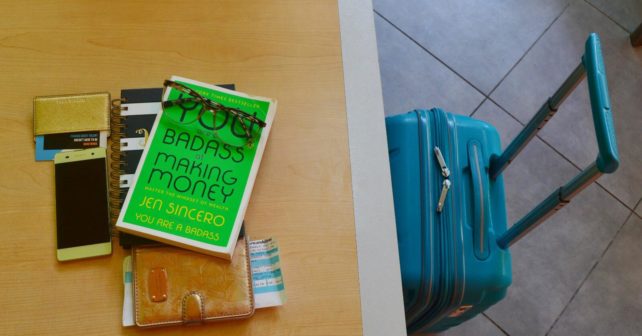
The more we conduct business across borders and diversify as a region, it causes us to spend a lot of our time moving between islands for work. Business travel has now become a normal part of how we do business. This can seem hectic and tiresome, but we’ve got a few approved travel tips to assist you on your journey.
Here are a few tips to help you survive a business trip:
1. Pack Correctly and Check-in Early
Being late for a flight can lead to you feeling flustered and ultimately rushing, which could result in you forgetting important items. The check-in process is the first step on business trips and usually sets the tone for the entire trip. If you have a rough check in process or you miss your flight, this could cause you to miss an important client meeting or a business opportunity.
Solution: We strongly advise checking your flight status and checking in online prior to your flight; that way you can simply drop off your bags upon arrival at the airport. Pack smart and avoid banned substances (such as liquids and aerosols) in checked luggage that cause delays in airport security.
Bonus Tip: For extended trips, pack a back-up suit or work outfit with a pair of work shoes in your carryon. Incidents of lost luggage can happen when you least expect them to. To avoid being completely thrown off your tightly packed work trip, pack the back-up!
2. Food Supplies
Ever checked into your hotel after a long day of travel, starving, and all the restaurants are closed? Yes. We’ve been there.
Packing light snacks and a bottled water can be a life saver for a late-night snack or to fight flight delay hunger.
3. Medication & Emergency Essentials
Being sick in a foreign country can be very uncomfortable and very expensive. While the likelihood of you falling sick may be small, it’s good to still be prepared in the event it does happen. For example, an unknown food allergy or a migraine headache could put you out for days if untreated. To avoid being unprepared, be sure to pack a small emergency kit containing medication and other essentials. Your travel medicine kit should include pain killers, cold & flu medication, allergy medication and basic bandages/supplies for minor cuts or bruises.
Bonus Tip: If you can, invest in travel medical insurance, especially when travelling to a region where you may become exposed to a possible outbreak.
4. Plan Ahead
It is important to plan ahead in order to efficiently map out your trip itinerary. Researching restaurants close to your hotel, transportation options to get you around, WIFI connectivity at your hotel and possible coffee shops for meetings can save you a ton of time and help you to maximize the time while on your trip.
5. Track Your Expenses Daily
Quite often, company travel policies dictate that you track your per diem expenses and hold receipts for their records. Tracking your expenses daily and having a designated storage area for your receipts can help reduce the anxiety of not being able to find receipts upon your return to work. Checking your receipts also help to provide you with a gauge to ensure you are spending within the allocated budget.
Traveling for business is already a taxing experience, so using the above tips will help to keep your time away as stress-free as possible.
